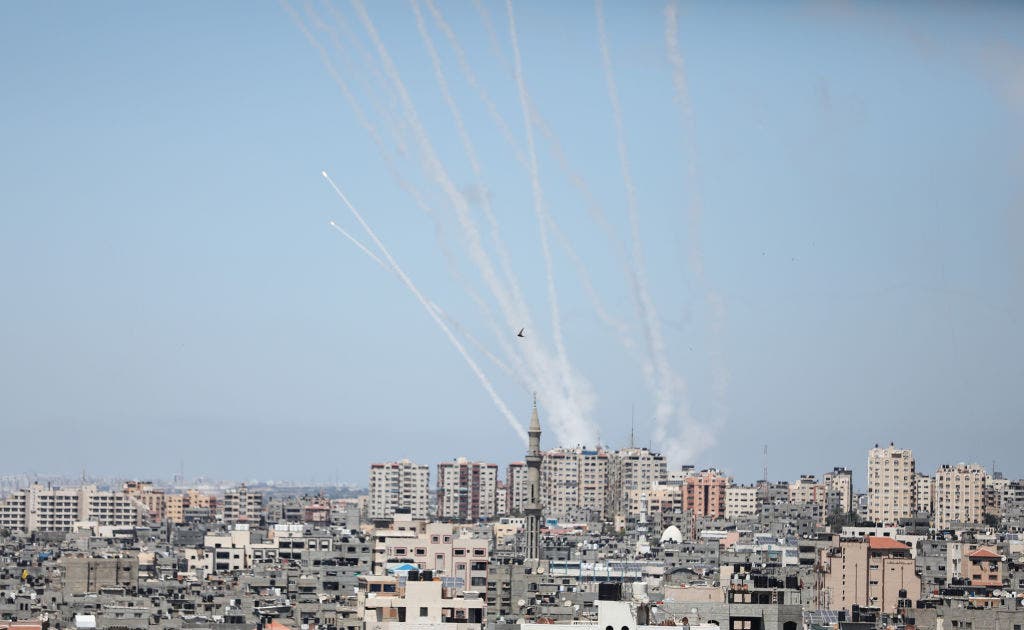Hamas terrorists launched a barrage of rockets into Israel, with a dozen of them fired from the city of Rafah. Israel’s Iron Dome intercepted most of the rockets, but alarms sounded in Tel Aviv and other major cities. Israeli forces have been increasing operations in Rafah, which they claim is the final major stronghold for Hamas in Gaza. Hamas claimed responsibility for the attack, citing retaliation for “Zionist massacres against civilians.” Israel has faced pressure to cease operations in Rafah, and has urged civilians to leave areas where military operations are taking place to minimize casualties.
Rafah, located on the border with Egypt, has been a major artery for humanitarian aid. Israel took control of the Gazan side of the border, leading Egypt to refuse further aid through the Rafah crossing until control is handed back to Palestinians. Aid has been temporarily diverted through Israel’s Kerem Shalom crossing, Gaza’s main cargo terminal, following a call between President Biden and Egyptian President Abdel-Fattah el-Sissi. However, United Nations workers have had difficulty accessing the aid due to nearby fighting. This comes as the U.S. constructed a “floating pier” on the Gaza coast, which suffered damage over the weekend. The $320 million pier has been used to transfer aid into Gaza, but as of last week, none of the aid had been delivered to Palestinians, according to the Pentagon.
The situation in Rafah has sparked controversy, with growing international pressure on Israel to end its operations in the region. Hamas’s rocket attack was seen as a response to alleged Israeli attacks on civilians. Israel has encouraged civilians to evacuate areas where military operations are taking place in an effort to minimize casualties. Rafah, home to approximately 1.5 million displaced Gazans, holds strategic significance as the final major stronghold for Hamas in Gaza. The ongoing conflict has raised concerns about civilian casualties and humanitarian aid access.
Egypt’s refusal to reopen the Rafah crossing until control is handed back to Palestinians has led to aid being redirected through Israel’s Kerem Shalom crossing. President Biden’s $320 million gamble to construct a floating pier on the Gaza coast as a conduit for aid has faced challenges, including damage due to rough weather. The pier has been used to transfer aid into Gaza, but obstacles have hindered the delivery of aid to Palestinians. The situation has highlighted the complexities of providing humanitarian aid amidst conflict and political tensions in the region.
The temporary diversion of aid through the Kerem Shalom crossing and the damage to the floating pier have underscored the challenges in delivering aid to Gaza amid ongoing conflict. The involvement of the U.S. in constructing the pier as part of a larger effort to provide humanitarian assistance has faced setbacks, including issues with stability and access. The situation in Rafah, the control of border crossings, and the delivery of aid to Gaza remain key focal points in addressing the humanitarian crisis in the region. International efforts to facilitate aid delivery and ensure the safety of civilians in conflict zones continue to be of utmost importance.


